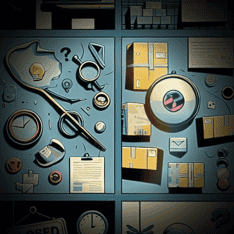![Post Image about The Secret Weapon of Elite Poker Players: Unmasking HUDs in [year] - Poker Tools Blog](https://betterchecked.com/cdn-cgi/image/format=auto,metadata=none,onerror=redirect,fit=scale-down,width=234,quality=35/https://cdn.sanity.io/images/6llxa8fs/production/c3671c6f26d82d64abef68ca4500f2cdff798431-1024x1024.png?w=1024&fm=png)
The Secret Weapon of Elite Poker Players: Unmasking HUDs in 2024


Neural networks are used to play poker better than humans can. The constant upgrades of this AI tech will change the future of poker.
As a poker fan, I'm really interested in how AI is changing the game. AI systems like Libratus and Pluribus are getting better at the game by learning to strategize like pros - or so they say. Now it's like "AI versus humans in poker", which makes you wonder, "Can AI beat poker pros?"
It's super cool to see AI, tech, and poker coming together. This could lead to a point where machines are better than human gut feelings - scary thought, isn't it? ;) This might be what they mean by "future changes in poker AI".
Guess we'll just have to wait and see how this plays out - no pressure, humanity! :)
Ever thought about how AI could change poker?
It's like having a digital sidekick that's always crunching numbers and suggesting smart moves.
But, does this mean we'll be out of the game? Or will it just make us better players? Hmm...
As AI steps into the poker world, we've got to ask - are we cool with AI calling our bluffs?
This mix of tech and gaming is pretty interesting, isn't it?
AI uses algorithms to look at tons of data from past games, helping it make the best calls based on stats.
Imagine having a supercomputer on your team, studying every move, bet, and fold from loads of games, all to give you an advantage.
But wait!
AI can do more than that.
![Post Image about The Secret Weapon of Elite Poker Players: Unmasking HUDs in [year] - Poker Tools Blog](https://betterchecked.com/cdn-cgi/image/format=auto,metadata=none,onerror=redirect,fit=scale-down,width=234,quality=35/https://cdn.sanity.io/images/6llxa8fs/production/c3671c6f26d82d64abef68ca4500f2cdff798431-1024x1024.png?w=1024&fm=png)
The Secret Weapon of Elite Poker Players: Unmasking HUDs in 2024

Crunching Numbers Like a Pro: Mastering Equity Calculators

Poker Tools for the Ambitious Player: How to Reach New Heights in Tournaments

Unlocking Pro-Level Play: The Secrets of Hand Ranges

Legends in the Spotlight: The Best Poker Matches of the Last Decade
![Post Image about Decode Your Mistakes: The Ultimate Guide to Hand Analysis in [year] - Poker Tools Blog](https://betterchecked.com/cdn-cgi/image/format=auto,metadata=none,onerror=redirect,fit=scale-down,width=234,quality=35/https://cdn.sanity.io/images/6llxa8fs/production/263c0839fd79681c48f6a7ab68404064588570b7-1024x1024.png?w=1024&fm=png)
Decode Your Mistakes: The Ultimate Guide to Hand Analysis in 2024

The HUD Hall of Fame: Timeless HUD Poker Tools That Have Stood the Test of Time
And sometimes, what seems like a weird decision by AI turns out to be a strategic move once the game progresses, showing AI's skill in assessing risk-reward situations.
It's like watching a chess master, making moves that confuse us until the endgame reveals their brilliance.
Are we ready for AI to call our bluffs?
Ready or not, the future of poker is here, and it's all about AI.
As a poker fan, I'm really interested in how AI can guess the next move in the game. The AI looks at tons of data and uses complicated algorithms to make decisions based on odds and stats - instead of just human instinct. This has made a big difference in poker, with AI systems like Libratus and Pluribus doing really well. But how does it work?
Well, it's mostly about:
As AI keeps getting better, we'll probably see more cool uses in poker. Whether it's helping players make smarter decisions or changing how the game is played, AI is going to have a big impact on the future of poker. While some people might say that AI takes away the unpredictability of the game (party poopers), others think it's an exciting new field where machines could possibly do better than human instinct. Haha, imagine that!
As a pro poker player, I've always used the surprise element to win. But what if AI comes into play? Can it guess my bluffs? Is AI going to be the next big thing in poker? Mixing tech with poker feels like being in a cool sci-fi movie - beam me up, Scotty! Could AI beat human intuition? Or will the unpredictable fun of poker still stand strong? We need to look into this.
To get this interesting topic, we should think about a few main points.
But it's not all bad for us humans. Even though AI's pretty advanced in poker, the random creativity and instinctive bluffs of human players add more complexity and keep the game surprising.
So, what's the final word? As a poker fan with years of experience, I've seen how AI has changed the game. While it might seem like a threat to human intuition, AI's ability to learn from loads of data and guess outcomes is pretty cool. However, one thing AI can't copy is the surprise factor. Human players can still bluff and make unexpected moves, keeping their opponents on their toes. While AI-assisted players might have a strategy advantage, they can't account for the unpredictable nature of human emotions and decisions.
As an AI geek, I sometimes sit and ponder: will machines ever outplay pro poker players? The rise of high-tech AI systems like Libratus and Pluribus shows that tech is quickly moving up in the poker world - or should I say, 'bluffing its way to the top'? ;) These brain-like networks handle tons of data, spot patterns, and keep getting better at their game plans. It's almost as if they're on a winning streak, leading to epic wins against some of the top human players around the globe.
Now, some folks reckon that AI might end up replacing human poker players. On the other hand, others believe that the game will always need a mix of:
So, it's still a toss-up how AI will eventually change the poker game. Will it be a royal flush for AI, or will humans keep their poker faces intact? Only time will tell :)
While playing poker against this new AI, I started thinking - can a machine really beat human instinct? The AI kicked in, figuring out odds and chances in a way that was impressive but also kinda scary. It made me question my own creativity with its cold, hard logic, analyzing every move I made without missing a beat.
In the end, the AI won, making me wonder about the future of AI vs humans in poker. Is there room for our creativity when tech meets poker? Or will AI make human players as useless as a chocolate teapot?
The answer isn't as simple as it seems. AI systems like Libratus and Pluribus have been killing it - going head-to-head with some of the best poker pros in the world. These aren't just machines that remember hands; they use crazy algorithms to spot patterns and come up with strategies that even experienced human players might miss. But, we shouldn't forget about the 'human factor'. Humans bring something special to the poker table:
These are all things that AI hasn't mastered yet. Poker's always been about strategy and skill, but AI adds a whole new layer. By crunching numbers super fast, AI can figure out the best move based purely on stats and odds. But, no two poker games are the same, which gives humans an advantage. Seasoned players know how important it is to adapt to the game's changing dynamics, something that AI, despite its huge computing power, still finds tough.
Honestly, both AI and humans are good at different parts of the game. AI's great at:
So, comparing AI and humans in poker isn't about picking a winner or loser. It's about appreciating the cool mix of tech, strategy, and the human mind. As for me, I might have lost to AI this time, but I'm not done yet - there's always a chance for a comeback. After all, in poker, it's not over until the last card is dealt.
Ever thought about AI winning at poker? Well, it's not just a dream anymore. AI systems like Libratus and Pluribus have already beaten pro poker players - it's like watching a sci-fi movie come to life on the poker table! Could we be looking at a future where AI dominates poker? These impressive AI victories definitely make you think... or worry, depending on how good your poker face is ;) Let's look at some cool facts.
As a seasoned writer for a review blog about 'Poker Tools', I can say that AI has changed the game of poker. Neural networks like Libratus and Pluribus have shown amazing skills, leading to questions about the role of human intuition in poker. While these systems may seem intimidating, their strategies can be understood through learning from tons of data, refining patterns, and constant adaptation. The impact of AI on poker is clear, and players need to adapt to stay in the game.
As a poker pro, I can tell you this: everyone's talking about Libratus and Pluribus right now. They've beaten some of the best human players - and they're only getting better! Their success? It comes from using a bunch of different methods that let them plan and analyze like they're superhuman.
Some people might say AI is taking the fun out of poker, but it's obvious these systems are pushing the limits. They're changing the game for good, and poker players will have to step up their game to stay in the competition. So, no pressure, guys! :)
When I first heard about Libratus and Pluribus beating humans at poker, I was shocked. As a poker player, it got me curious - how are these AIs always winning? It seems like the tech they're built on is key.
These bots deal with tough math - probability, game theory, and more. After doing all the math, human gut feeling doesn't seem to match up against them. We're up against machines made to outsmart us. But is using AI in poker cheating? I'm not sure...it feels like a fair game. When AI, tech, and poker mix, the future looks like one where robots are smarter than humans. Could AIs take our place at the tables? That idea kind of hurts my pride as a poker player :( But, I have to give credit where it's due - well done, machines. You've managed to turn a game of bluffing into a science experiment. Well done. ;)
When I first found out about Libratus and Pluribus, I was hooked. How do these AIs get so good at poker? As a poker fan, this blew my mind! From what I understand, these AIs look at tons of data to build deep neural networks. This includes:
All this data helps them see patterns and insights that even the best human players might miss. They get better by training non-stop and focusing on things like:
They're also creative, bluffing and randomizing like pro players. Libratus seems to love making "tricky" moves, almost like it's messing with its opponents' heads. At the tables, these AIs are relentless - totally focused on winning. They show no fear, no doubt, and no emotion. Their cool, calculated approach is seriously impressive. Some people say that without psychology and intuition, it's not "real" poker. But you can't argue with their results. When AI and poker meet, the future looks exciting - man vs machine contests where both use their unique strengths. Could AIs eventually outsmart us all? As a poker player, I sure hope not! But they're definitely strategic pros, so I need to up my game. Or maybe I should just start praying for a power outage during our next match, haha!
Ever thought about how AI is shaking up poker? Well, meet Libratus and Pluribus. These AI systems use a method called reinforcement learning to outsmart humans - they play millions of games, learning from each win or loss.

3 bullish arguments that Bitcoin price just bottomed at $53K

Messi & $WATER promotion: Solana token's wild rise and ethical concerns

Mid-March deadline for Solana ETF: Analyst predicts big moves

Germany sells BTC: government readies $276M Bitcoin sell-off

Why dropshipping is bad in 2024: truth behind the failure rate

Trade skins for PROFIT: 5 ways to make it work

Ukraine's shocking PS4 farm bust for illegal FIFA coins

Hypedrop closing: exit scam claims & withdrawal issues

Hypedrop crypto hack: Alphapo's $61M loss in 2023
It's like they're always practicing and getting better; talk about dedication! So, what happens when AI, tech, and poker mix? Could we be heading towards a future where machines consistently beat us at the game? That'd be wild, wouldn't it?
To break it down, Reinforcement Learning lets Libratus and Pluribus make decisions based on past experiences. Just like we learn through trial and error, these AIs do the same, learning from their mistakes and tweaking their strategies.
The impact of AI on poker is obvious, with Libratus and Pluribus showing superior play. Their reinforcement learning strategies let them outsmart even the most skilled human players. As experts in this field, we've seen how fast this tech is progressing and the debates it's started about its role in the game.
I've been playing poker with my buddies every Tuesday for a while now. But lately, Mike's been winning all the time - no matter how good my hand is. Turns out, he's been using some AI thing at home to up his game.
This whole AI in our poker night feels like a total backstab (ouch!). But hey, I can't really blame him for trying to get ahead. After all, it's all about winning, right? ;)
The whole AI and poker thing does make me wonder though: is it cheating if you use tech to beat human players? I don't know, but what I do know is that Mike's AI game is making me feel pretty outdated at the poker table. Looks like I need to step up my game if I want to keep up. Maybe I should think about getting my own AI (haha).
One thing's for sure - this AI stuff is changing poker. Will AI eventually beat us humans completely? Guess we'll have to wait and see. For now, I could really use another beer.
Sitting here, shuffling my cards, I can't help but wonder: Is it cool to bring AI into poker?
There's a lot of buzz around 'AI poker' and it's hard to ignore. It's a cool blend of tech and poker, but it also raises some big questions. Maybe there's something unique about human gut feelings in poker. Are we heading towards a future where AI beats us all? And if so, do we even want that? This needs more thought...
This brings up the whole machine vs human debate. Sure, AI has proven it can rock at poker, but does beating a computer feel as good as outsmarting another person? Plus, we can't forget how this might affect player growth.
This leads to the question of fair play. AI in poker shakes up the fair play conversation.
![Post Image about The Secret Weapon of Elite Poker Players: Unmasking HUDs in [year] - Poker Tools Blog](https://betterchecked.com/cdn-cgi/image/format=auto,metadata=none,onerror=redirect,fit=scale-down,width=234,quality=35/https://cdn.sanity.io/images/6llxa8fs/production/c3671c6f26d82d64abef68ca4500f2cdff798431-1024x1024.png?w=1024&fm=png)
The Secret Weapon of Elite Poker Players: Unmasking HUDs in 2024

Crunching Numbers Like a Pro: Mastering Equity Calculators

Poker Tools for the Ambitious Player: How to Reach New Heights in Tournaments

Unlocking Pro-Level Play: The Secrets of Hand Ranges

Legends in the Spotlight: The Best Poker Matches of the Last Decade
![Post Image about Decode Your Mistakes: The Ultimate Guide to Hand Analysis in [year] - Poker Tools Blog](https://betterchecked.com/cdn-cgi/image/format=auto,metadata=none,onerror=redirect,fit=scale-down,width=234,quality=35/https://cdn.sanity.io/images/6llxa8fs/production/263c0839fd79681c48f6a7ab68404064588570b7-1024x1024.png?w=1024&fm=png)
Decode Your Mistakes: The Ultimate Guide to Hand Analysis in 2024

The HUD Hall of Fame: Timeless HUD Poker Tools That Have Stood the Test of Time
This takes us to policy guidelines. Should there be rules controlling the use of AI in poker? This could help ease worries about integrity, honesty, and the spirit of competition in the game. Lastly, we need to think about poker's future. Will the growing use of AI in poker totally change how the game works? It's worth looking into what the 'future' poker table might look like - fully automated or a mix of AI and human players? As a pro writer for a review blog about 'Poker Tools' with years of experience, I can say that AI tech has seriously changed the game. It's cool to see how neural networks can process tons of data, learn from patterns, and keep improving their strategies. While this has led to unmatched levels of play in poker, it also raises questions about the role of human instinct and creativity in the game.
This article was written, checked and verified by multiple authors to ensure maximum accuracy and up to date data. We strive for providing the best and most helpful resources about Poker Tools available.

Have suggestions or want to become an author for our poker tools magazine as well?